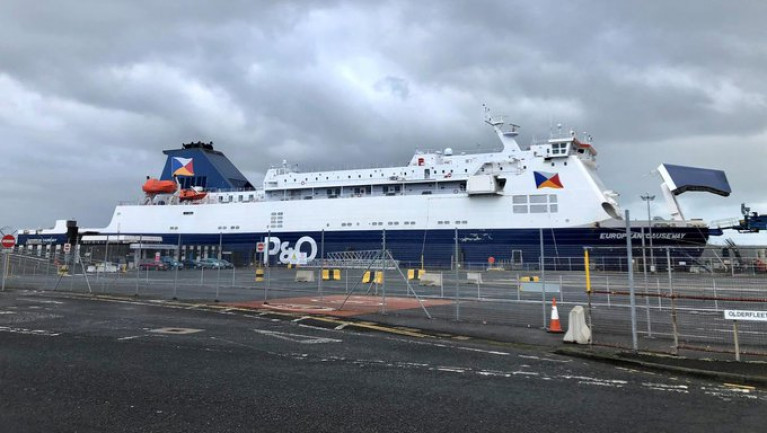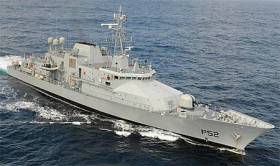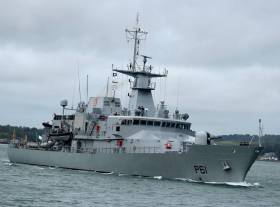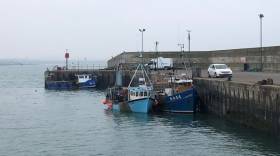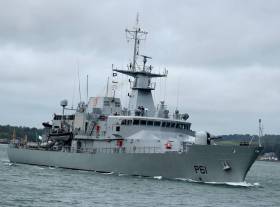Displaying items by tag: detained
Ship Detained in Larne after P&O ferry is Deemed ‘Unfit to Sail’
Operator P&O Ferries which has a ship on the North Channel route has been detained in Larne Port for being “unfit to sail”.
The vessel European Causeway reports Belfast Telegraph, has been held in the Northern Ireland port due to “failures on crew familiarisation, vessel documentation and crew training”, the Maritime and Coastguard Agency (MCA) said.
Transport Secretary Grant Shapps said he will not compromise the safety of P&O vessels and insisted that the company will not be able to rush training for inexperienced people.
A spokesperson for the Maritime and Coastguard Agency said: “We can confirm that the European Causeway has been detained in Larne.
“It has been detained due to failures on crew familiarisation, vessel documentation and crew training.
“The vessel will remain under detention until all these issues are resolved by P&O Ferries. Only then will it be reinspected.”
The MCA said there were no passengers or freight on board the European Causeway vessel when it was detained.
For much more on the this story from the Co. Antrim ferryport click here.
French Registered Fishing Boat Detained by Irish Navy off Cork Coast
A fishing vessel registered in France according to RTE News, has been detained off the Cork coast.
The Naval Service vessel LÉ Niamh detained the boat (on Wednesday) and its crew around 150 nautical miles south west of Fastnet Rock.
The detention was in connection with an alleged breach of fishing regulations.
The fishing boat is being escorted by the LÉ Niamh to Castletownbere, where it will be handed over to gardaí.
The Naval Service says this is the ninth vessel to be detained so far this year.
Fishing Vessel Detained in Irish Waters Is Portuguese
In Irish waters a Portuguese-registered fishing vessel, reports The Irish Times, was detained by the Navy Service on Thursday.
The Lé Samuel Beckett, a Naval Service patrol vessel, detained the Portuguese boat approximately 200 nautical miles south of Fastnet Rock, after an alleged breach of fishing regulations.
In a statement, the service said the Portuguese vessel was being escorted to Castletownbere, County Cork, where it will be handed over to An Garda Síochána. The detention is now a garda matter and the nature of the infringement has not been disclosed.
It is the second detainment by the service this week and the eighth of 2019. On Tuesday, Lé George Bernard Shaw detained an Irish fishing vessel off Howth.
More here on this latest detention.
NI Registered Fishing Boats Detained in Dundalk Bay
#navy - In Dundalk Bay, two Northern Ireland-registered fishing vessels were detained on Tuesday evening of this week.
As RTE News reports, they were detained by the crew of the LÉ Orla who were carrying out their normal patrols in the area.
The Irish Naval Service has confirmed the two boats were detained for alleged breach of fishing regulations.
They were escorted to Clogherhead where they were handed over to gardaí yesterday.
Gardaí say the vessels, The Boy Joseph and The Amity, were detained under the 2006 Fisheries Act and an order to hold the boats for 48 hours was issued at Dundalk District Court.
The fishing boats remain at Clogherhead.
The detention of the two vessels comes amid an ongoing dispute caused by the demise of an informal deal between the UK and Irish governments.
For further reading on the fishery detention, click here.
#NavalService- A fishing vessel has been detained by the Irish Naval Service off the coast of Mizen Head, Co. Cork in relation to “an alleged breach of fishing regulations”.
The vessel writes Independent.ie was detained by the Naval Service offshore patrol ship LÉ Samuel Beckett approximately 170 nautical miles west of Mizen Head, and is currently being escorted to Dingle in Co Kerry.
It is expected to arrive alongside LÉ Samuel Beckett tomorrow morning (today, 5 Dec) where it will be handed over to gardai on arrival.
For more on the detention click here.


























